The 7th meeting of the International Society for the Linguistics of English (ISLE 7)
19-22 June 2023
Registrations closed
Welcome to the website for ISLE 7!
ISLE 7 will take place Monday 19 June to Friday 23 June 2023, as a hybrid conference with the onsite conference taking place on the St. Lucia Campus of the University of Queensland in Australia.
ISLE 7 will be hosted by the University of Queensland School of Languages and Cultures.
The conference theme for ISLE 7 is 'Combining Tradition and Computation'.
Please note: Presenters must be ISLE members.
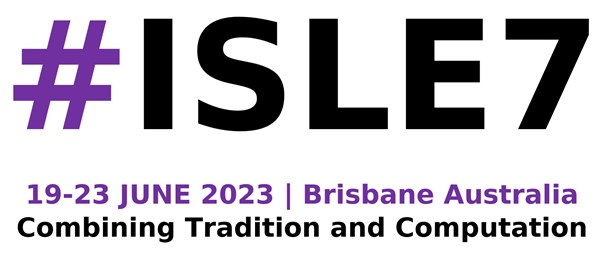
Register
Presenters must be an ISLE member and register by 1 May 2023.
Consent form
This conference will be recorded and shared with other ISLE7 attendees. We ask that everyone attending, including presenters sign the following consent form prior to the conference.
Important dates
Pre-recorded presentation files: 17 May 2023
Consent form signed: 17 May 2023
Registration closes: 1 June 2023
Talk Delivery
Talks and presentations will be presented via the following delivery methods:
- Live / on site (this will be zoomed to online attendees)
- Present online via Zoom
- Submit recordings and they will be played (by the chair). We ask that presenters to be available during your talk for the Q&A
- Consent form: has to be filled out by all.
- Infrastructure for Zoom recordings!
Travelling Around Brisbane
Go Card
 The Go Card is an essential tool for convenient and hassle-free travel around Brisbane using the city's extensive public transport network. It is a rechargeable smart card that allows commuters to effortlessly access buses, trains, and ferries, making it the go-to choice for locals and visitors alike. With a simple tap-on and tap-off system, the Go Card ensures seamless entry and exit from vehicles, eliminating the need for paper tickets or exact change.
The Go Card is an essential tool for convenient and hassle-free travel around Brisbane using the city's extensive public transport network. It is a rechargeable smart card that allows commuters to effortlessly access buses, trains, and ferries, making it the go-to choice for locals and visitors alike. With a simple tap-on and tap-off system, the Go Card ensures seamless entry and exit from vehicles, eliminating the need for paper tickets or exact change.
Where to buy a Go Card
There are hundreds of locations in South East Queensland where you can buy and top your go card. You can find them at your nearest news agency, convenient stores (7/11), and train stations (purchase from the service desk).
Click here to find your nearest location.
How to top up your Go Card
To keep your Go Cards topped up, you can conveniently recharge them at various locations, including ticket vending machines at train and bus stations, selected retailers, and online through the TransLink website.
Registrations closed
Prices
| Ticket type | Attendance | Price (AUD) | Price (USD - approx) | Price (EUR - approx) |
|---|---|---|---|---|
| General Registration | On campus | $550 | $380 | €356 |
| Student Registration | On campus | $450 | $311 | €292 |
| General Registration | Hybrid (online) | $300 | $208 | €194 |
| Student Registration | Hybrid (online) | $250 | $173 | €162 |
ISLE7 presenters will need to register by 1 May 2023 and must be an ISLE member.
Consent form
This conference will be recorded and shared with other ISLE7 attendees. We ask that all presenters sign the following consent form prior to the conference.
Enquiries
For any registration queries, please contact the ISLE 7 Organising Committee.
isle7@uq.edu.au
ISLE 7 Conference Program
Pre-conference workshops
| Session 1 | |||||||||||
| 32-208 (ISLE7 staff) | 32-209 | 32-210 (ISLE7 staff) | 32-211 (ISLE7 staff) | ||||||||
| 9:00-9:30 | “People’s poetry”, “dustbin language” and everywhere in between — the ins and outs of English slanguage (K. Burridge & H. Manns) | Lexical Variation within World Englishes (P. Peters) | Satellite event Text Analysis Tools S. Musgrave Welcome and Introduction to Jupyter notebooks | ||||||||
| 9:30-10:00 | A. Laugesen Australian Historical Lexicography and the Challenges of Australian Slang | T. Bernaisch Empirical traces of the pragmatic nativisation of Sri Lankan English | S. Hames Discursis | ||||||||
| 10:00-10:30 | I. Burke “Google it, mate”: a comparative study of antagonistic mate in Australian and British English | R. Fuchs All the wallahs in the godown: Diachronic Change in Indian English Lexis | |||||||||
| 10:30-11:00 | C. Krafzik How Aussies Swear: Comparing Anglo-Celtic, Chinese and Italian Australians | P. Peters & P. Peters Indian and Sri Lankan English | B. Foley Tools for geolocation | ||||||||
| 11:00-11:30 | Tea Break | ||||||||||
| Session 2 | |||||||||||
| 32-208 (ISLE7 staff) | 32-209 | 32-210 (ISLE7 staff) | 32-211 (ISLE7 staff) | ||||||||
| “People’s poetry”, “dustbin language” and everywhere in between — the ins and outs of English slanguage (K. Burridge & H. Manns) | Lexical Variation within World Englishes (P. Peters) | Satellite event Text Analysis Tools (S. Musgrave, S. Hames, & B. Foley, Ch. Sun) | |||||||||
| 11:30-12:00 | K. Allan The royal warrant on writing ‘fuck’ | L. Lising & P. Peters Discourse markers in Philippine Englishes | Ch. Sun ATAP tool showcase: Quotation Tool, Semantic Tagger, Document Similarity | ||||||||
| 12:00-12:30 | D. Hughes Can I get an F in the chat for Australian slang? | A. Smith Changing attitudes to immigration – a study into parliamentary and newspaper discourse | |||||||||
| 12:30-13:00 | K. Burridge Longevity of slang | B. Purser Adverbs of evidentiality in Australian English | |||||||||
| 13:00-14:00 | Lunch Break | ||||||||||
| Session 3 | |||||||||||
| 32-208 (ISLE7 staff) | 32-209 (ISLE7 staff) | 32-210 (ISLE7 staff) | 32-211 (ISLE7 staff) | ||||||||
| “People’s poetry”, “dustbin language” and everywhere in between — the ins and outs of English slanguage (K. Burridge & H. Manns) | Challenges and New Directions in English Corpus Linguistics in Australia (M. Bednarek, P. Crosthwaite & M. Schweinberger) | Lexical Variation within World Englishes (P. Peters) | |||||||||
| 14:00-14:30 | S. Musgrave Creativity and performativity in Australian slang (WiP) | M. Bednarek, P. Crosthwaite & M. Schweinberger Introduction (Start 14:15) | R. Fuchs Global variation in the linguistic expression of persuasion | ||||||||
| 14:30-15:00 | H. Manns What to do when a slang’s not a slang: Australian slang and Javanese Boso Walikan | C. Carvalho & P. Pinto Corpus Linguistics contributions to the elaboration of teaching activities to develop EFL Listening skills | C. A. Basile Modal BETTER: a corpus-based investigation in World Englishes | ||||||||
| 15:00-15:30 | P. Crosthwaite An introduction to CorpusMate | R. P. Romasanta Looking at the effect of language contact across varieties of English worldwide | Panel Discussion The Combination of Tradition and Computation in the Study of Scottish Historical Correspondence (M. Dossena & Ch. Elsweiler) | ||||||||
| 15:30-16:00 | Tea Break | ||||||||||
| Session 4 | |||||||||||
| 32-208 (ISLE7 staff) | 32-209 (ISLE7 staff) | 32-210 (ISLE7 staff) | 32-211 (ISLE7 staff) | ||||||||
| Panel Discussion Female childhoods. Linguistic approaches to the silent and obscure years of women in English (auto-) biographical discourse, 1750-1900 (P. Tejada Caller) | Challenges and New Directions in English Corpus Linguistics in Australia (M. Bednarek, P. Crosthwaite & M. Schweinberger) | Lexical Variation within World Englishes (P. Peters) | Panel Discussion The Combination of Tradition and Computation in the Study of Scottish Historical Correspondence (M. Dossena & Ch. Elsweiler) | ||||||||
| 16:00-16:30 | P. Tejada Caller Introduction G. Plaza Tejedor, N. Calvo Cortés Trained as a domestic servant in her girlhood”: girls’ lives in Australian female biographical discourse M. Ruiz-Quesada Biography and Black Female Childhood in the ODNB I. de la Cruz Cabanillas, J. Ruano- García Exploring the ODNB component of the FemChildLing Corpus: The case of female Glaswegian voices | R. Yin & M. Schweinberger A corpus-based acoustic analysis of vowel production by L1-Chinese learners and native speakers of English | J. Neels, S. Leuckert, A. Lohmann Grammaticalisation of habitual aspect in World Englishes: Assessing trajectories, areal patterns and rates of change with synchronic corpora | ||||||||
| 16:30-17:00 | H. Caple Challenges for constructing corpora from Australian historical newspapers | A. Bohmann The discursive construction of gender: Verb phrases with SHE/HE subjects in different varieties of English | |||||||||
| 17:00-17:30 | M. Kemble Emotionality in corpora: A mixed- method approach to analyse affect in Australian sports news coverage | ||||||||||
| 17:30-18:00 | P. Tejada Caller & J. López Narváez Social paths as discourse topics in the construction of 19th c British female childhoods M. Nadales The bride was just eighteen years old”: A preliminary analysis of the linguistic construction of female childhood in biographic discourse between 1881-1890 | C. Bray Applying decolonial research principles in corpus-based critical discourse analysis of Aboriginal and Torres Strait Islander peoples and issues | |||||||||
| Session 1 | ||||||||||
| 9:45-10:00 | Welcome address by the organizers (32-215) | |||||||||
| 10:00-11:00 | 1st Keynote: Catherine Travis The intersection of ethnicity and social class in language variation and change (32-215) | |||||||||
| 11:00-11:30 | Tea Break | |||||||||
| Session 2 | ||||||||||
| 32-209 (Chair: Isabelle Burke) | 32-210 (Chair: Pam Peters) | 32-211 (Chair: Peter Crosthwaite) | ||||||||
| 11:30-12:00 | C. Paolini, H. Cuyckens, S. Marzo, D. Speelman & B. Szmrecsanyi Give me a break: another dative alternation study, but one enriched with distributional semantics | M. Clews A swampful of quackers: reimagining Australian English dialect formation | M. Laitinen & M.Fatemi New approaches to (digital) social networks | |||||||
| 12:00-12:30 | S. Hackert, C. Laliberté, R. Mailhammer, D. Wengle & R. Zeidan Past tense marking in English on Croker Island: implications for variation and change in English | Th. Poulton & K. Burridge “Kinships of sound-to-sense” in the senses: Case study in the English Smell Lexicon | B. Busse, N. Dumrukcic, S. Du Bois & I. Kleiber Corpus-Based Network Analysis of Onomastic References in 17th-Century Grammar Writing | |||||||
| 12:30-13:00 | E. Jorgensen, A. Margetts, I. Burke & H. Sheppard Speech and gesture in the expression of caused motion events in Australian English | J. Walker The Sound (Not) Heard Round the World: A Cross-Variety Comparison of (t/d)-Deletion | S. Grossenbacher & D. Britain Dialect transmission on the move: nomadic communities, dialect acquisition and sociolinguistic sedentarism | |||||||
| 13:00-14:00 | Lunch Break | |||||||||
| Session 3 | ||||||||||
| 32-209 (Chair: James Walker) | 32-210 (Chair: David Britain) | 32-211 (Chair: Sophie DuBois) | ||||||||
| 14:00-14:30 | Ch. Mair Nigerian Pidgin as an Informal World Language | K. Hirano A Linguistic Change and its Directional Shift among British Residents in Japan | O. Schützler Variable vowel contrasts in Scottish Standard English: Social factors and implicational hierarchies | |||||||
| 14:30-15:00 | A. A. Vela-Rodrigo 100% crowdfunded! A study on phraseology for successful scientific communication in an emerging digital genre | J. Landmann Recent Metaphors of Brexit in the British press: A linguistic analysis based on the Financial Times | G. Schneider & P. Ronan Representations of Ireland in the British Parliament | |||||||
| 15:00-15:30 | S. Hartmann & T. Ungerer Language, schmanguage: The multimodal semantics of English shm-reduplication | N. Braber & V. Howard Utilising technology to safeguard linguistic heritage: Celebrating Varieties in Nottinghamshire | G. Schneider & P. Ronan (Lightning talk) What does ChatGPT know about linguistics? | |||||||
| 15:30-16:00 | Tea Break | |||||||||
| 16:00-17:00 | 2nd Keynote: Brian Joseph pickpocket Compounds in English: Foreign and Marginal but Productive and Expressive (32-215) | |||||||||
| 17:00-17:15 | Elen Le Foll: Hogg Prize Presentation (32-215) | |||||||||
| 17:15-18:15 | Karen Corrigan: LE president's address (32-215) | |||||||||
| 18:30-20:30 | Opening Reception in the GCI Atrium (Drinks & Snacks) Online Activity for remote attendees | |||||||||
| Session 1 | ||||||||||
| 10:00-11:00 | 3rd Keynote: Stefan Gries A critique of conflation in corpus linguistics, and a forward-looking practical application to keywords analysis (32-215) | |||||||||
| 11:00-11:30 | Tea Break | |||||||||
| Session 2 | ||||||||||
| 32-209 (Chair: Carolin Krafzik) | 32-210 (Chair: Robert Mailhammer) | 32-211 (Chair: Helen Caple) | ||||||||
| 11:30-12:00 | M. Fatemi & M. Laitinen Your words and network ties could reveal your location | A. Moehle Podcasts as a new frontier of blended spoken and written speech modality | I. Burke Sarcastic shutdown or solidarity-builder? The discourse-pragmatic marker yeah-no in Australian English conversation | |||||||
| 12:00-12:30 | M. Schweinberger, M. Fatemi, S. Hames, M. Haugh, M. Laitinen, P. Rautionaho & M. Takahashi Who swears most – and in what social settings? | Z. Xu Exploring functional variations of cultural metaphors in the works of Ha Jin and Zhu Dake | A. Margetts & I. Burke Bring me a cup of tea and "deliver those cattle" – Lexicalisation and construction of caused accompanied motion in Australian English | |||||||
| 12:30-13:00 | M. Nakayasu & M. Shiina Trial record of King Charles I: Space, time, history and discourse in an Early Modern courtroom | J. Schilling & R. Fuchs Keywords UK | A. Schramm & M. Salomon-Amend Nature’s mirror: Psycholinguistic evidence of conceptual iconicity in time in language | |||||||
| 13:00-14:00 | Lunch Break | |||||||||
| Session 3 | ||||||||||
| 32-209 (Chair: Howie Manns) | 32-210 (Chair: Melissa Kemble) | 32-211 (Chair: Masoud Fatemi) | ||||||||
| 14:00-14:30 | N. Matsumoto The distinction between the try-and-V and try-to-V sequences | R. Yi Assessing the Manner of Speech A Study of English-Mandarin Chinese Remote Interpreting in Australian Courts | S. Riegler Targeting pragmatic functions: additional annotation for VOICE | |||||||
| 14:30-15:00 | B. Leclercq May and might as post-modal markers of concession | M. Shakir & D. Deuber Code-switching in South Asian online English conversations | A. Inoue What take priority - Grammatical correctness or semantic interpretation? | |||||||
| 15:00-15:30 | M. Mittendorfer Discourse functions and placement: an analysis of dislocation in English | T. Zhou & Sh. Mansor A Comparative Study Of Rhetorical Strategies And Their Influencing Factors In The Monologue Verbal Humor Of Chinese And English Talk Shows | Z. Wu Quantifying syntactic gradience: rethinking words and word classes | |||||||
| 15:30-16:00 | W. Yizhou, C. O'Shannessy, R. Bundgaard- Nielsen, & V. Davis Stop voicing contrast in English spoken by Aboriginal speakers in Central Australia | A. Ong & R. McKenzie Does language matter in Mental Health?: A Corpus-assisted Discourse Analysis of Mental Health in the Newspapers and Public Forum in Malaysia | J. Schilling & R. Fuchs Pandemic Talk: Identifying keywords and phrases in British COVID-19 Twitter and newspaper discourse | |||||||
| 16:00-17:00 | Tea Break | |||||||||
| 17:00 - 18:00 | 4th Keynote: Jonathan Culpeper Shakespeare’s Language and the English Language (32-215) | |||||||||
| 18:00 - 18:30 | Drinks & Snacks | |||||||||
| 18:30 - 20:00 | General Assembly (32-215) | |||||||||
| Session 1 | |||||||||||
| 10:00-11:00 | 5th Keynote: Ina Bornkessel-Schlesewsky Unravelling the mystery of the Nun Study: the interplay between prediction, neural noise and linguistic complexity (32-215) | ||||||||||
| 11:00-11:30 | Tea Break | ||||||||||
| Session 2 | |||||||||||
| 32-208 (Chair: Chiara Paolini) | 32-209 (Chair: Adam Smith) | 32-210 (Chair: Simon Musgrave) | 32-211 (ISLE7 staff) | ||||||||
| 11:30-12:00 | A. Nawaz Student Writers and Scholarly Publishing: Studying Linguistic Variations between Novice Writing and an Award-Winning Publication | M. Bednarek & B. Meek Language and identity in Australian and US Indigenous-authored television series | A. Mikhaylova & E. Brownlow Narrative discourse structure in literate Russian-English child bilinguals in Australia | L. Wilde & J. Dzubak Case Studies for Using WordCruncher to Analyze Linguistic Variation in Corpora | |||||||
| 12:00-12:30 | D. Britain & H. Hedegard No one thinks twice: variation, change and the personal compound determinative doublets –body and – one in Falkland Island English | Th. Van Hoey, M. H. Gardner, B. Szmrecsanyi Grammatical variation in English is not so difficult | Y. Li Vocabulary knowledge and use: Lexical features in Chinese EFL learners’ writing | ||||||||
| 12:30-13:00 | H. Hedegard & D. Britain A multidimensional vowel analysis of PRICE and MOUTH in Falkland Island English | A. Rauhut Distance-based measures of co- occurrence and dispersion: stability and application | M. Clews Getting Cinderella to the ball: towards a corpus of 19th-century Australian English letters | ||||||||
| 13:00-14:00 | Lunch Break | ||||||||||
| Session 3 | |||||||||||
| 32-208 (Chair: TBA) | 32-209 (Chair: Monika Bednarek) | 32-210 (Chair: Alexander Rauhut) | 32-211 (ISLE7 staff) | ||||||||
| 14:00-14:30 | J. Leimgruber & S. Rüdiger Discourse-Pragmatic 'Like' in East Asian Englishes: Focus on Taiwan | Y. Yang The corpus-based error correction in a classroom-based tertiary FL learning context in China: Learners’ experiences and perceptions | S. Dollinger On unaddressed bias when “Combining Tradition and Computation”: the case of hegemonic academic discourse in DCHP-3 and beyond | G. Schneider Introducing the Text Crunching Center and the Linguistic Research Infrastructure | |||||||
| 14:30-15:00 | R. Bottini Topic familiarity in L2 spoken exams: Exploring lexical complexity in the Trinity Lancaster Corpus | F. Berner The very problem - the problem of using very as a diagnostic for modifiability | J. Davydova Tracking global English changes through local data: Intensifiers in German Learner English | ||||||||
| 15:00-15:30 | D. Kenzhekeyeva (Lightning talk) The accentedness, comprehensibility, and intelligibility of English varieties by German and Kazakh speakers | A. A. Flores Hernandez (Lightning talk) A corpus-based reference list as a morphological-profiler tool | L. Stvan (Lightning talk) “Forget what you know about eggs”: Forms of myth busting in American health discourse | ||||||||
| 15:30-16:00 | Tea Break | ||||||||||
| Session 4 | |||||||||||
| 32-208 (Chair: Simon Musgrave) | 32-209 (Chair: Mikko Laitinen) | 32-210 (Gerry Docherty) | 32-211 (ISLE7 staff) | ||||||||
| 16:00-16:30 | R. Hickey Lifespan Change in 20th Century Irish English | V. W. S. Tse & A. J. Theng English isn't her native language: Defensive metalinguistic commentary and the limits of tolerance | Y. T. Yu Media representations of China amid COVID-19: A corpus-assisted critical discourse analysis | M. Schweinberger An Introduction to the Resources provided by LADAL - the Language Technology and Data Analysis Laboratory | |||||||
| 16:30-17:00 | B. Clancy & E. Vaughan Facilitating intimacy through the use of pragmatic markers: A corpus examination of First Dates Ireland | A. A. Flores Hernandez Morphologically complex words production, testing and processing in English learners | J. Schilling & R. Fuchs On Wars, Waves and Monsters: Metaphors in British COVID-19 Newspaper and Social Media Discourse | ||||||||
| 17:30 - 17:45 | Break | ||||||||||
| 17:45-18:45 | 6th Keynote: Jennifer Hay The stories we tell: narrative and phonetic stability in retold stories recorded 7 years apart (32-215) | ||||||||||
| 18:45-19:00 | Farewell Note (32-215) | ||||||||||
| 19:30-22:00 | Conference Dinner (Saint Lucy's) Online Activity for remote attendees | ||||||||||
| Post-Conference Activities (sign-up possible during the conference) | |||||||
| Option A: A Marvellous Brisbane City Botanical Gardens Walk | |||||||
| Option B: A Beautiful Ferry / CityCat Trip to Bretts Wharf and Hamilton | |||||||
| Option C: A Fabulous Queensland Museum Visit with a Subsequent Unforgettable South Bank Stroll |
Ina Bornkessel-Schlesewsky
University of South Australia
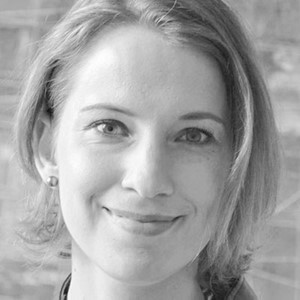 Ina Bornkessel-Schlesewsky is Professor of Cognitive Neuroscience at the University of South Australia (UniSA) and Director of the Cognitive Neuroscience Laboratory within the Australian Research Centre for Interactive and Virtual Environments (IVE). Ina joined UniSA in 2014 from the University of Marburg, Germany. Prior to her appointment as Professor of Neurolinguistics in Marburg, she headed the Max Planck Research Group "Neurotypology" at the Max Planck Institute for Human Cognitive and Brain Sciences in Leipzig, Germany.
Ina Bornkessel-Schlesewsky is Professor of Cognitive Neuroscience at the University of South Australia (UniSA) and Director of the Cognitive Neuroscience Laboratory within the Australian Research Centre for Interactive and Virtual Environments (IVE). Ina joined UniSA in 2014 from the University of Marburg, Germany. Prior to her appointment as Professor of Neurolinguistics in Marburg, she headed the Max Planck Research Group "Neurotypology" at the Max Planck Institute for Human Cognitive and Brain Sciences in Leipzig, Germany.
Ina is passionate about understanding how the human brain processes language – an interest that she first developed due to her bilingual upbringing, after having moved to Australia from Germany at the age of 7. She has championed the perspective that, in order to truly understand how the human brain processes language, we need to take into account the full diversity of the world's 7000 languages. Her research is further inspired by the recognition that language – like all human cognitive abilities – is deeply rooted in neurobiology and basic mechanisms of information processing in the brain.
With a prolific research program reflected in over 90 publications in refereed international journals, over 20 book chapters and 4 monographs / edited volumes, Ina has won more than AU$4 million in competitive grant funding, including an Australian Research Council Future Fellowship. Her research has been honoured with several prizes, including the Heinz Maier-Leibnitz Prize (awarded by the German Research Foundation and German Federal Ministry of Education and Research), the most prestigious scientific prize for young researchers in Germany.
Jonathan Culpeper
Lancaster University
 Jonathan Culpeper is Professor of English Language and Linguistics at Lancaster University, UK. His research spans pragmatics, stylistics and the history of English, all of which he has pursued at some point through corpus methods.
Jonathan Culpeper is Professor of English Language and Linguistics at Lancaster University, UK. His research spans pragmatics, stylistics and the history of English, all of which he has pursued at some point through corpus methods.
His major publications include Early Modern English Dialogues: Spoken Interaction as Writing (2010, CUP; with Merja Kytö), Pragmatics and the English Language (2014; with Michael Haugh), and English Language: Description, Variation and Context (2018; lead editor).
He is currently leading the corpus-based the £1 million AHRC-funded Encyclopedia of Shakespeare's Language project, which will provide evidence-based and contextualised accounts of Shakespeare's language.
Stefan Gries
University of California
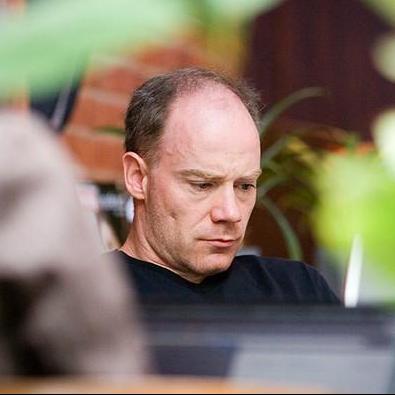 Stefan Th. Gries is Professor of Linguistics at the University of California, Santa Barbara (UCSB), as well as Honorary Liebig-Professor and Chair of English Linguistics (Corpus Linguistics with a focus on quantitative methods) at the Justus-Liebig-Universität Giessen.
Stefan Th. Gries is Professor of Linguistics at the University of California, Santa Barbara (UCSB), as well as Honorary Liebig-Professor and Chair of English Linguistics (Corpus Linguistics with a focus on quantitative methods) at the Justus-Liebig-Universität Giessen.
He was a visiting professor at the 2007, 2011, 2013, 2015, and 2019 LSA Linguistic Institutes at Stanford University, the University of Colorado at Boulder, the University of Michigan, Ann Arbor, the University of Chicago, and the University of California, Davis; he was also a Visiting Chair (2013-2017) of the Centre for Corpus Approaches to Social Science at Lancaster University and the Leibniz Professor (spring semester 2017) at the Research Academy Leipzig of the Leipzig University.
He is a quantitative corpus linguist at the intersection of corpus linguistics, cognitive linguistics, and computational linguistics and has applied a variety of different statistical methods to investigate a wide range of linguistic topics; much of his work involves the open-source software R. Gries has produced more than 200 publications (articles, chapters, books, and edited volumes) and he is an active member of more than a dozen editorial boards as well as academic societies.
Jennifer Hay
University of Canterbury
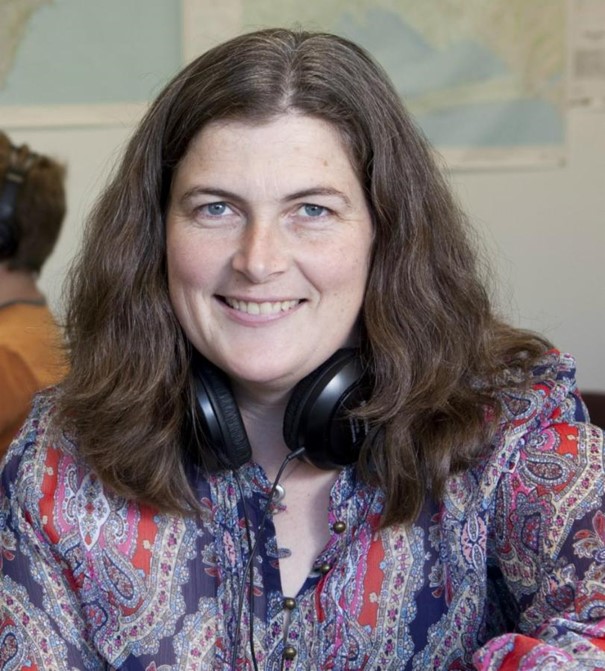 Jen Hay is Professor of Linguistics at the University of Canterbury, Director of the New Zealand Institute of Language, Brain and Behaviour, and an Elected Fellow of the Royal Society of New Zealand.
Jen Hay is Professor of Linguistics at the University of Canterbury, Director of the New Zealand Institute of Language, Brain and Behaviour, and an Elected Fellow of the Royal Society of New Zealand.
She has broad research interests spanning New Zealand English, Sociophonetics, Laboratory Phonology, and Lexical Representation, and she has published widely in these areas.
Brian Joseph
Ohio State University
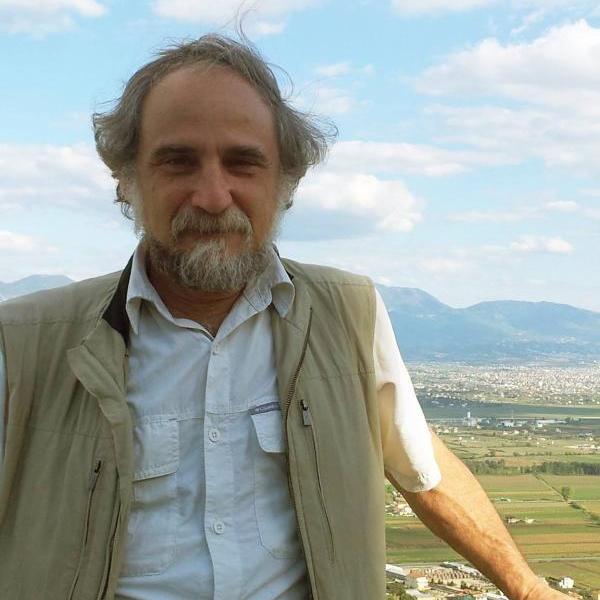 Brian has been at OSU since 1979, after receiving his Ph.D. from Harvard in 1978 and spending a year as a Killam Postdoctoral Fellow at the University of Alberta.
Brian has been at OSU since 1979, after receiving his Ph.D. from Harvard in 1978 and spending a year as a Killam Postdoctoral Fellow at the University of Alberta.
His interests are quite broad, but are focused first and foremost on the study of language change, especially in regard to the Greek language throughout all of its historical phases, from Mycenaean up through Modern Greek, including its prehistory and how it fits into the Indo-European language family and also its more recent significant contact with its neighboring languages in the Balkans. But Brian's interests run also to other languages, especially Sanskrit and Albanian, and to other areas within linguistics, including both morphological theory and the embedding of language into social structures.
More recently, he has been working on issues of language sustainability, looking both at what has gone into making the Greek language relatively robust in its diasporic setting in southern Albania and at what we can determine about linguistic -- and concomitantly ethnic -- viability in ancient times in the eastern Mediterranean.
Catherine Travis
The Australian National University
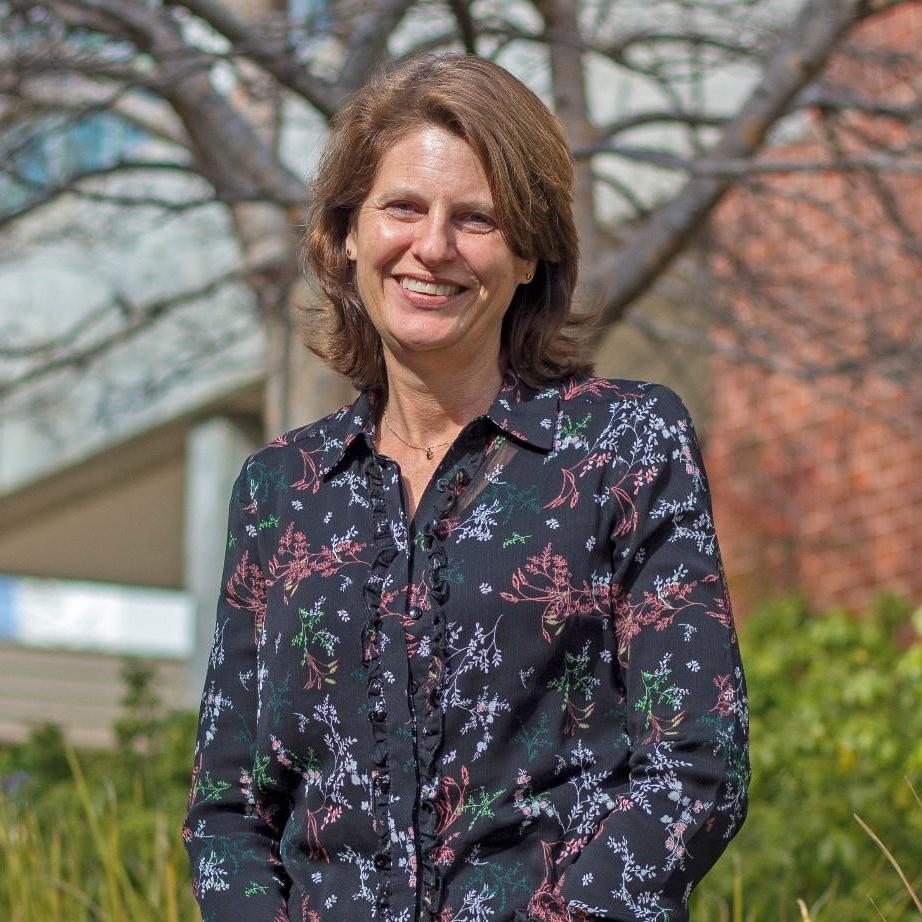 Catherine Travis is Professor of Modern European Languages in the School of Literature, Languages and Linguistics at the ANU, and a Chief Investigator in the ARC Centre of Excellence for the Dynamics of Language, and in the Language Data Commons – Australia project.
Catherine Travis is Professor of Modern European Languages in the School of Literature, Languages and Linguistics at the ANU, and a Chief Investigator in the ARC Centre of Excellence for the Dynamics of Language, and in the Language Data Commons – Australia project.
Her research addresses questions related to linguistic and social factors impacting on language variation and change, in particular in socially diverse communities.
She has conducted large-scale projects applying quantitative methods to the study of spontaneous speech data from English and Spanish, and in monolingual and bilingual communities. Most recently, she has been undertaking a longitudinal project examining Australian English as spoken by ethnically diverse communities across Sydney (Sydney Speaks).
Australian Government COVID-19 travel restrictions and information for visa holders
Welcome to Brisbane! Queensland's capital city Brisbane is known as Australia's New World City. Innovative, modern and welcoming, Brisbane has been rated in the top 30 per cent of the world's fastest-growing cities and in the top 10 cities in the world for lifestyle and talent.
Travel Guide - Discover Brisbane
Applying for a visa
Visa Information
 International flights from Brisbane
International flights from Brisbane
The city of Brisbane delivers a first-class travel and transport network making it an easy and cost effective choice for conference delegates.
Easily accessible, Brisbane is serviced by one of Australia's fastest growing airports with a network of direct flights from 31 international and 50 domestic destinations. As the closest eastern seaboard capital city to Asia, Brisbane offers frequent flights to various Asia Pacific destinations and is a transfer hub from major European destinations. Direct flights arrive several times a day from Asia, the United States, New Zealand, the Pacific and the Middle East.
Brisbane International Airport boasts an extensive network of direct flights to international destinations including but not limited to:
 Singapore
Singapore- Hong Kong
- Bangkok
- Shanghai
- Auckland
- Dubai
- Los Angeles
- Vancouver
This allows easy access for international delegates to travel home.
Brisbane city remains compact and well connected, allowing delegates to easily travel between venues, hotels, parklands, cultural attractions, entertainment precincts and dining locations.
The University of Queensland
Located just seven kilometres from Brisbane's city centre (accessible by car or public transport), UQ St Lucia is renowned as one of Australia's most attractive university campuses.
Accommodation and Getting Around Brisbane
 During your stay in Brisbane for the ISLE 7 Conference 2023, we recommend you choose accommodation in the South Bank precinct or Brisbane CBD. There are few accommodation options close to the UQ St Lucia campus, and there is so much more to see and do in the CBD and South Brisbane during your free time. These locations will also be most convenient for those attending the conference welcome reception and dinner.
During your stay in Brisbane for the ISLE 7 Conference 2023, we recommend you choose accommodation in the South Bank precinct or Brisbane CBD. There are few accommodation options close to the UQ St Lucia campus, and there is so much more to see and do in the CBD and South Brisbane during your free time. These locations will also be most convenient for those attending the conference welcome reception and dinner.
Accommodation options in both areas are many and varied, and both locations have easy access to City Cat ferry terminals and bus networks with direct routes servicing The University of Queensland. If using public transport to travel to UQ campus for the academic program, we recommend that you select accommodation close to either the North Quay or South Bank City Cat terminal, or Cultural Centre or King George Square Bus Station (indicated by maroon markers on map). Central and South Brisbane train stations are serviced by the AirTrain, which is a direct service from Brisbane International and Domestic Airport.
Getting Around Brisbane
All guests will be need to obtain a GoCard upon arrival in Brisbane for travel on all local buses, ferries and trains (not valid on AirTrain). There are many accommodation options available from 5 Star hotels to private rentals to backpacker hostels, and everything in between. Some suggestions (all within 1km, or less than around a 10 minute walk to bus station or ferry terminal) are listed below.
Hotel Accommodation Options
To give our ISLE 7 2023 guests the best experience in the heart of Brisbane city, indicative rates have been sourced from the following hotels based in South Bank offering a great location to restaurants, bars and tourist attractions all within easy public transport access to the UQ St Lucia Campus.
Emporium Hotel South Bank
Emporium Hotel South Bank
267 Grey Street, South Brisbane
1800 346 835 | +61 7 3556 3333 (outside Australia)
info@emporiumhotels.com.au
Pullman & Mercure Brisbane King George Square
Pullman & Mercure Brisbane King George Square
Corner of Ann and Roma Streets, Brisbane
+61 (0)7 3229 9111
H8784@accor.com
Mantra South Bank
Mantra South Bank
161 Grey Street, South Bank
+61 (07) 3305 2500
southbankbris.res@mantra.com.au
Other Brisbane Accommodation Options
Sofitel Brisbane Central combines contemporary design with French elegance in a 5-star hotel, located over Central Station, and a short walk to the Queen Street Mall and bus station. The Riverside Ferry Terminal is a 10 minute walk away. The hotel offers guests all you would expect in a 5-star hotel, with pool, gymnasium, concierge, 24 hour room service and award winning restaurants.
Hilton Brisbane is centrally located in the heart of Brisbane’s Queen Street Mall shopping precinct, with easy access to all modes of public transport. This 5-star hotel offers contemporarily furnished rooms with premium bedding and pillow menu, designed for business and leisure travellers. Amenities include outdoor pool, tennis courts and gymnasium, inhouse restaurant and bar, 24 hour room service, concierge and business centre.
Ibis Styles Brisbane is a 4-star hotel, located conveniently close to the City Cat terminal and Brisbane’s main shopping hub. The hotel is modern, offering stylish, colourful and comfortable rooms at economical rates. Guests enjoy free internet, complimentary laundry facilities and all day dining plus 24 hour “Call & Collect" menu. Room tip: sometime rooms on lower floors can get a bit of street noise, so we suggest you request a room on a higher floor.
Next Hotel Brisbane is located on the Queen Street Mall, right in the hub of Brisbane’s central shopping district, and a short walk to the ferry terminal. This hotel focuses on efficiency and functionality, providing 4-star comfort and convenience. Guests with early morning or late night flights can access the ‘In Transit Zone’, offering showers, sleep pods and work stations.
Special Accommodation Offers in South Bank, Brisbane
To give our ISLE 7 2023 guests the best experience in the heart of Brisbane city, indicative rates have been sourced from the following hotels based in South Bank offering a great location to restaurants, bars and tourist attractions all within easy public transport access to the UQ St Lucia Campus. We have secured special rates at some of these hotels for ISLE 7 2023 guests with promotional codes available for the below locations:
| Star Rating | Property | Room Types | Rate (AUD per night) | Promotional Code |
| 5 Star | Vista Suite | From $239* | TBA | |
| River City Suite | From $309* | TBA | ||
4 - 4.5 Star | Superior / Superior Twin | From $199* | TBA | |
| Superior River View | From $219* | TBA | ||
| Mantra South Bank Brisbane | Hotel | From $139* | TBA | |
| Studio | From $159* | TBA |
*Rates are per room, per night and were indicative for June 2020. The above properties reserve the right to review rates closer to the event dates. Should a major event occur in the city during the conference dates, properties reserve the right to implement a surcharge.
On-Campus Accommodation Options
ISLE7 guests also have the option to stay on-campus at one of our residential colleges. Just walking distance from the conference venue. Please find below a list of on-campus accommodations (these are subject to availability).
Union College
Union College
38 Upland Road, St. Lucia
+61 (07) 3377 1500
Contact their team to book
Organising Committee
Michael Haugh
Kate Burridge
Martin Schweinberger
Amir Sheikhan
Ruihua Yin
Peter Crosthwaite
Scientific Committee
Kate Burridge
Martin Schweinberger
Michael Haugh
Karen Corrigan
Sofia Rüdiger
Tanja Säily
Amir Sheikhan
Ruihua Yin
Peter Crosthwaite
Valeria Sinkeviciute

